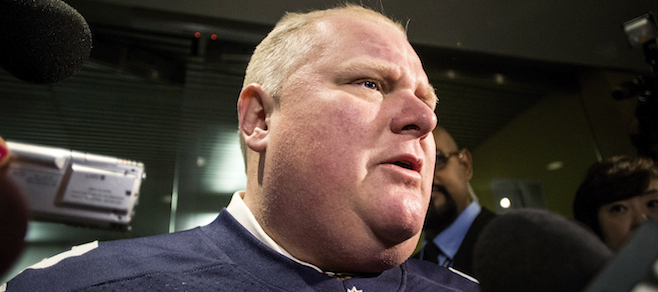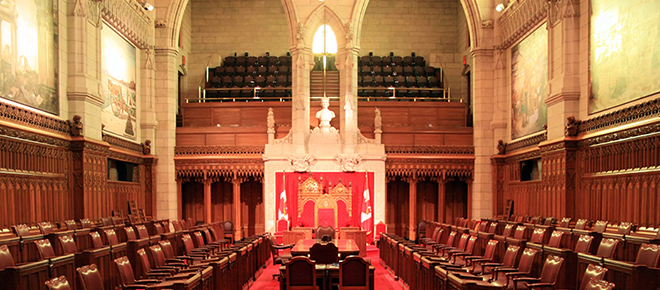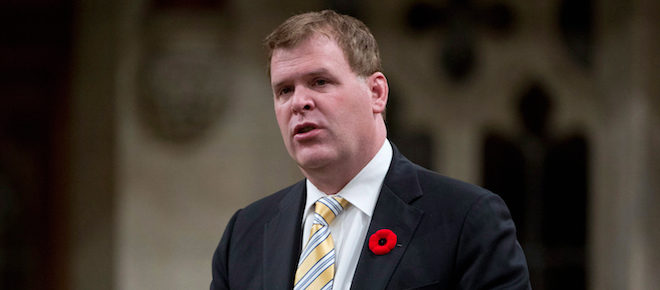5 things the feds did while Rob Ford was the only news in town
Harper’s team travelled the globe, and Czech visitors to Canada have it easier
Toronto mayor Rob Ford addresses the media inside his office with his brother Doug Ford by his side and read a prepared statement about admitting to his mistakes and smoking crack cocaine on Tuesday November 5, 2013. Jack Boland/Toronto Sun/QMI Agency
Share

Rob Ford made, um, a lot of headlines last week. But the people in charge in Ottawa, Stephen Harper’s team of Conservatives, didn’t stop governing. The House of Commons rose for a constituency week, and federal ministers got busy. Five things would have been bigger news if Toronto’s mayor hadn’t stolen our attention, repeatedly, every day. These are the five things.

1. A Supreme Court justice mused about Canada devolving into a dictatorship at the hands of a nefarious cadre of wayward provinces. Well, hypothetically, anyway. This week, the Supreme Court talked about Senate reform. The feds asked the court how to change the status quo in the Senate, and abolition of the Upper Chamber was among the government’s queries. When Saskatchewan lawyer Graeme Mitchell argued that abolition required only the consent of seven provinces representing half of Canada’s population, Justice Louis LeBel followed the prairie lawyer’s argument to its logical, if hypothetical, conclusion. “So Canada could be turned into a dictatorship with less than unanimity?” he asked. Replied Mitchell: Yes.

2. The government formally asked the Canadian Radio-television Telecommunications Commission to examine the issue of unbundling channels. That measure was one plank in the government’s broader nod to consumers’ rights in the latest Speech from the Throne. Heritage Minister Shelly Glover delivered the government’s line. “This decision is an important step in defending Canadian consumers, who want choice and flexibility in their television services,” she said. “Our request will ensure that the CRTC develops a more complete roadmap to unbundle TV channels.” The CRTC’s report, delivered by the end of April 2014, will explain how the agency will enforce the Conservatives’ new direction on cable packages.

3. Chris Alexander removed visa requirements for Czech visitors. The measure was rare for a European nation, and was meant to discourage an influx of bogus asylum claims filed by Roma applicants. Removing the requirement was meant to assuage Czech frustration as Canada works toward free trade with Europe. Alexander, the Immigration Minister, said similar requirements will remain in place for Bulgaria and Romania because of lingering concerns about gangs and smuggling.

4. John Baird flew to Kazakhstan. The Foreign Affairs Minister met Asset Issekeshev, Kazakhstan’s Deputy Prime Minister and Minister of Industry and New Technologies. Baird and Issekeshev inked a Nuclear Co-operation Agreement, which means Canadian companies who deal in nuclear trade can export their wares to the former Soviet state. Kazakhstan hasn’t run its own nuclear plant since 2001, but much of the world’s uranium deposits lie beneath the country. A government release says the NCA will “facilitate the exploration of joint commercial ventures, as well as research and development”—someone’s gotta help the Kazakhs process all that uranium.
5. Lisa Raitt visited Michigan’s governor. The Transport Minister travelled to Lansing, where she met Michigan Governor Rick Snyder. The pair continued work on a new border crossing between Windsor and Detroit. The prospective bridge made a few headlines during the 2012 presidential election, when billionaire Manuel Moroun, the owner of the existing Ambassador Bridge, waged a multi-million-dollar ad campaign meant to discredit any competition. Undeterred, Raitt and Snyder are working through the complicated process of international infrastructure. Among the work completed on the Canadian side: installation of snake fencing. Canada’s now hiring the CEO of the crown corporation that governs the crossing.
